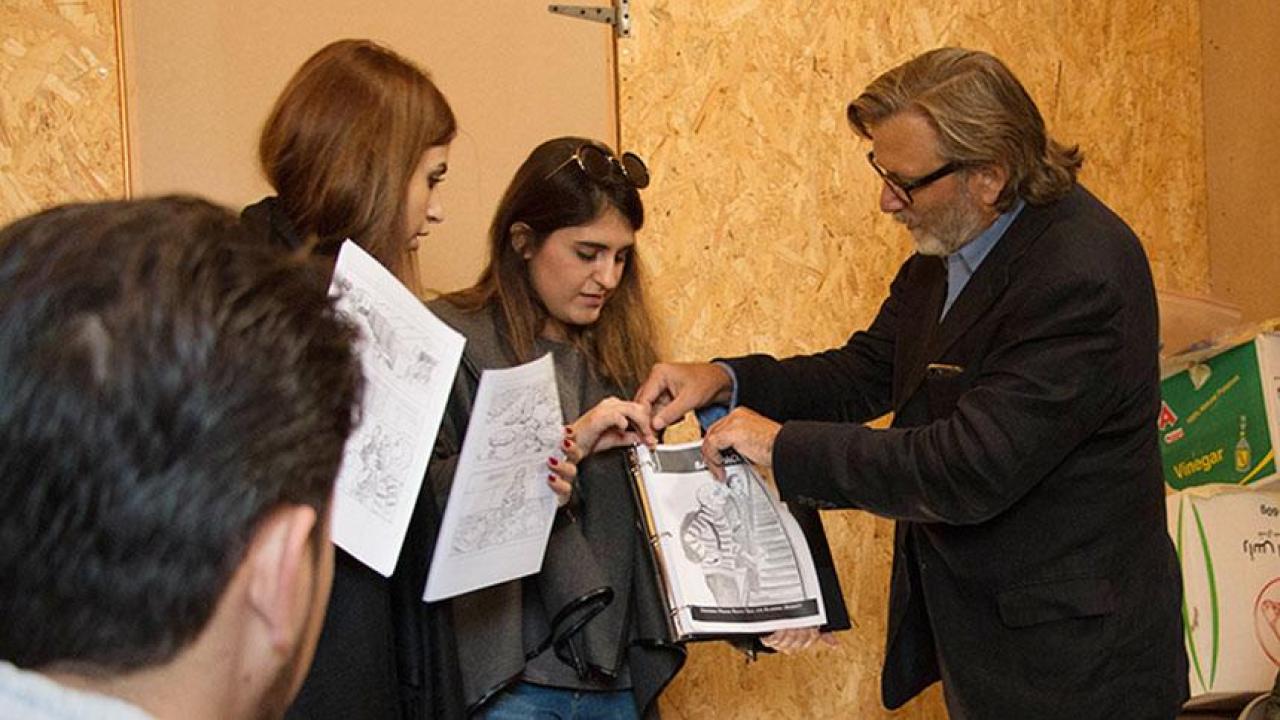
UC Davis Launches Digital Tool in Lebanon to Help Syrian Refugees Reclaim Right to Education
By Julia Ann Easley, Strategic Communications
"Jihad Qusanyeh, imprisoned and tortured as a student, will be among the first Syrian refugees to assemble a virtual “backpack” in a new project to help them reclaim their right to education.
Article 26 Backpack, which uses face-to-face counseling and cloud-based technology to help refugees document and share their educational accomplishments, will launch in Lebanon beginning Friday, June 15.
The international consortium behind the project is led by Keith David Watenpaugh, a professor and director of Human Rights Studies at the University of California, Davis. Consortium members include the American Association of Collegiate Registrars and Admissions Officers, or AACRAO, and the Issam Fares Institute for Public Policy and International Affairs at the American University of Beirut, or AUB.
Qusanyeh, a fourth-year student of applied chemistry at the University of Damascus when he was taken prisoner for five years, wants to complete his studies. “I always aim to learn more and more for when I return to Syria,” he shared in a video recorded to include in his backpack. “I’ll use what I learn for rebuilding Syria.”
Help to overcome challenges
About 36 percent of global youth have access to higher education but only about 1 percent of eligible refugees do, according to the United Nations High Commission for Refugees. The ongoing Syrian civil war has internally displaced or made refugees of more than 12 million people, and hundreds of thousands among them were — or should have been — in university, Watenpaugh said.
Article 26 Backpack, a part of Global Affairs at UC Davis and supported by a $500,000 grant from the Ford Foundation, is named for the article that established the right to education in the Universal Declaration of Human Rights, nearly 70 years ago.
Watenpaugh said the tool will help refugees overcome significant impediments to re-entering academic life or applying for employment — from problems accessing their own documents to little clarity about the transferability of their credentials."
Read the full story at UC Davis News.